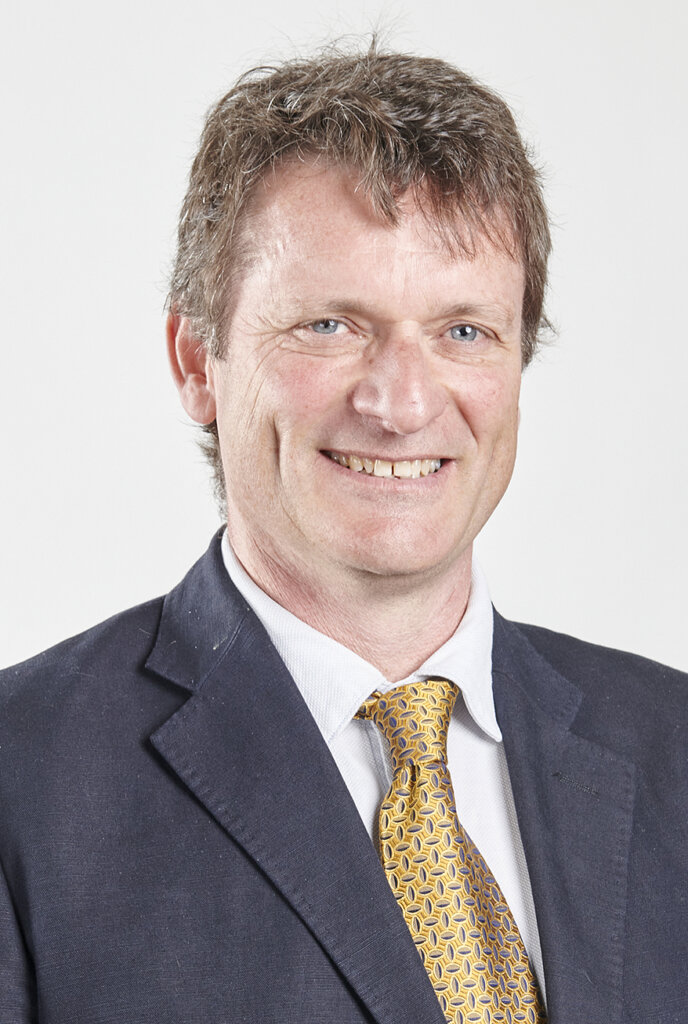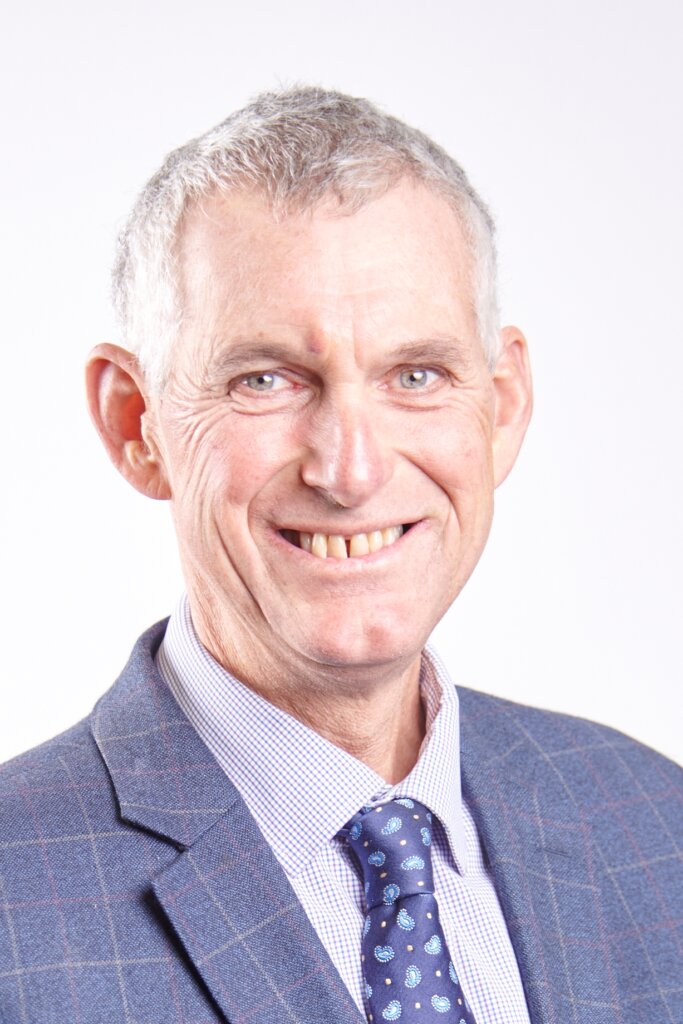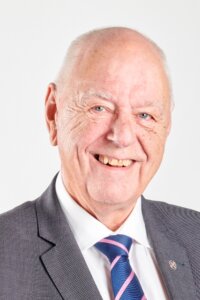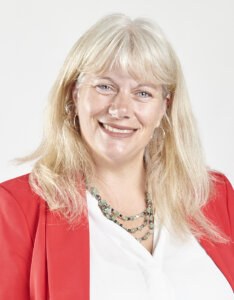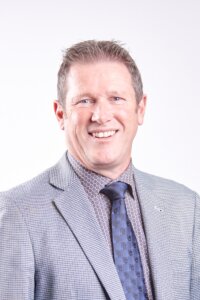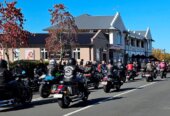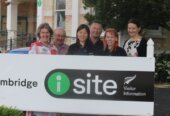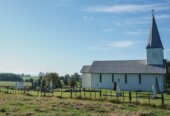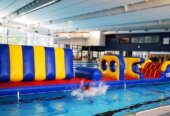Community board chairs Ange Holt and Jo Davies-Colley have been brutally honest in an assessment of their own performances tabled in a paper to Waipā councillors this week.
It has been a chaotic six months for both community boards with Holt getting offside with councillors and staff over plans for Te Awamutu Memorial Park and Davies-Colley stepping up when the Cambridge Connections “Blue Blob” debacle over the placement of a third bridge corridor through a Cambridge suburb turned to custard.
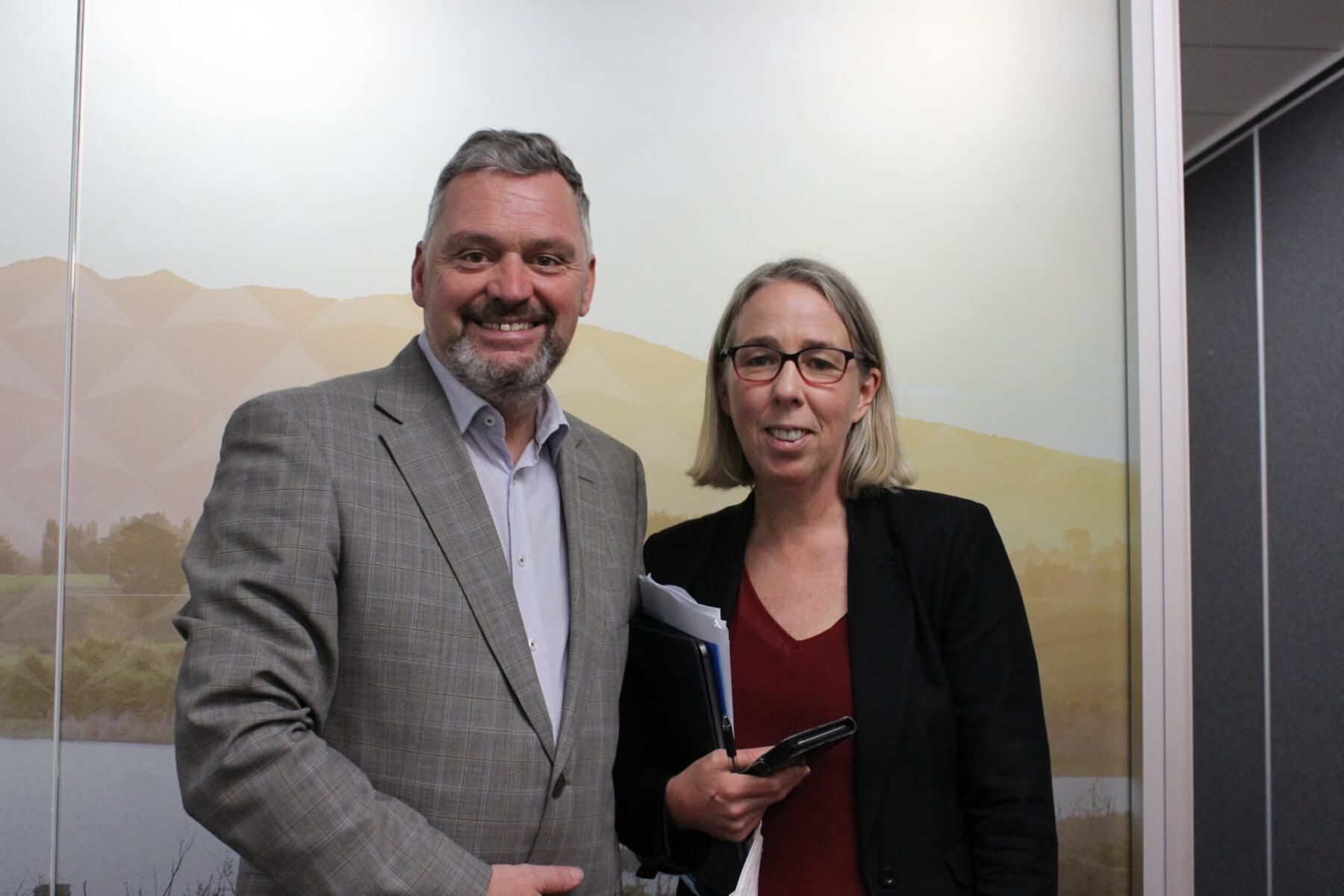
Consultant Steven Finlay with Governance manager Jo Gread when he presented his community board recommendations to the council nearly two years ago. Photo: Mary Anne Gill.
But a review of community boards’ role predated all this when the council adopted in July 2022 the recommendations of Equip Consultancy’s Steven Finlay to make community boards function better and be more relevant.
This followed attempts by the previous council to get rid of the community boards.
Holt takes “full responsibility” for her style and tone around issues such as the Memorial Park stoush while Davies-Colley says she recognises the need to build relationships in the community so the board can be better advocates.
The report card presented to the council’s Strategic Planning and Policy committee this week was the first opportunity to see how community boards are faring and set them 24-month goals. Te Awamutu got a 40 per cent mark while Cambridge attained 60 per cent.
Similar assessments are not required of councillors but if they were Waipā residents might say the council elected representatives themselves “could do better”.
The paper does say councillors on community boards – Mike Montgomerie and Philip Coles at Cambridge; Bruce Thomas and Lou Brown at Te Awamutu-Kihikihi – should up their game and take better opportunities to update community board members at meetings.
- Mike Montgomerie
- Philip Coles
Governance manager Jo Gread told the committee there were genuine opportunities “but also very real concerns” which warranted specific recommendations and support for the community boards.
Davies-Colley stopped short of criticising her board’s role as the consensus is under her leadership it is reflecting the community’s views more accurately than its own elected councillors.
Its focus on gathering evidence to support a submission to the council’s Enhanced Annual Plan for a new Cambridge Library and Community Hub was hijacked when a drop in session over the Cambridge Connections transport project descended into a farce in March.
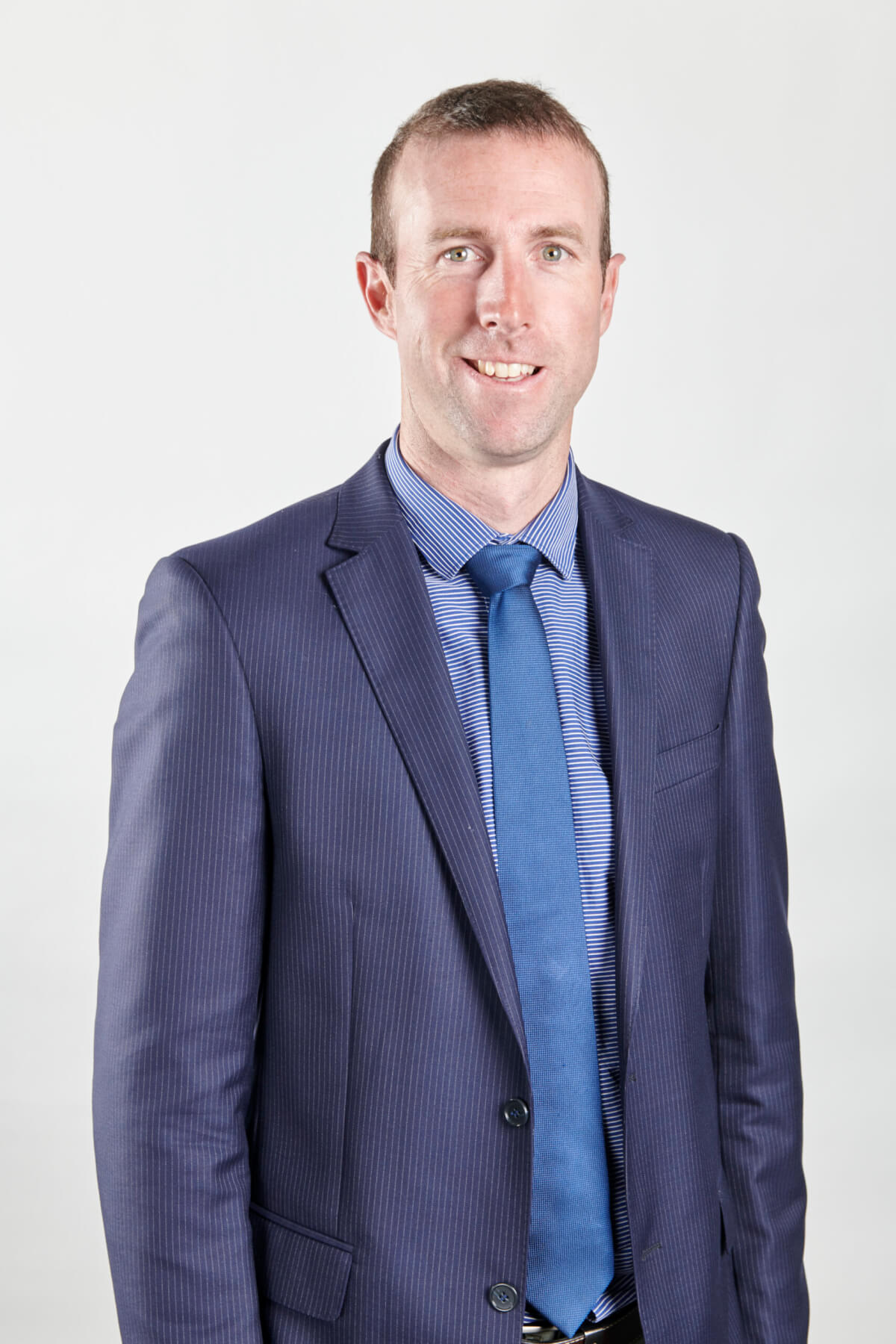
Andrew Myers
The board’s involvement had been minimal – it had Andrew Myers as a representative on the project group, but he was sworn to secrecy.
“We have facilitated public conversations, will continue to seek answers and clarification to key questions, and meet with concerned residents of the initial third bridge location,” said Davies-Colley.
“We have actively engaged with council staff over both the plan and the communications strategy around it.”
She has become the community’s primary “go to” person in the absence of its elected councillors – Roger Gordon, Mike Pettit and Liz Stolwyk – and while Philip Coles has been vocal, his actions appear unwise as he potentially ruled himself out of future decisions.
Sources tell The News Davies-Colley has been approached to stand for the council next year.
- Roger Gordon
- Liz Stolwyk
- Mike Pettit
Finlay’s November update to the council on the boards’ progress was considered in a behind closed doors workshop and was released for the first time this week.
The Cambridge board needed to build broad engagement and advocacy opportunities with the Chamber of Commerce by working together to raise the ‘town vibrancy’ and continue placemaking efforts with bigger ticket items like the Town Hall and Leamington improvements, he said.
“The community board were thoughtful and positive about new participatory democracy opportunities but also aware of their own value proposition in being deeply connected to community networks.”
Davies-Colley acknowledged the recommendations and said the board’s upcoming work would focus on advocating for further urban mobility upgrades to Shakespeare Street, support Leamington village to become a connected part of wider Cambridge and advocate for more cycling and walking paths through Cambridge East towards the high school.
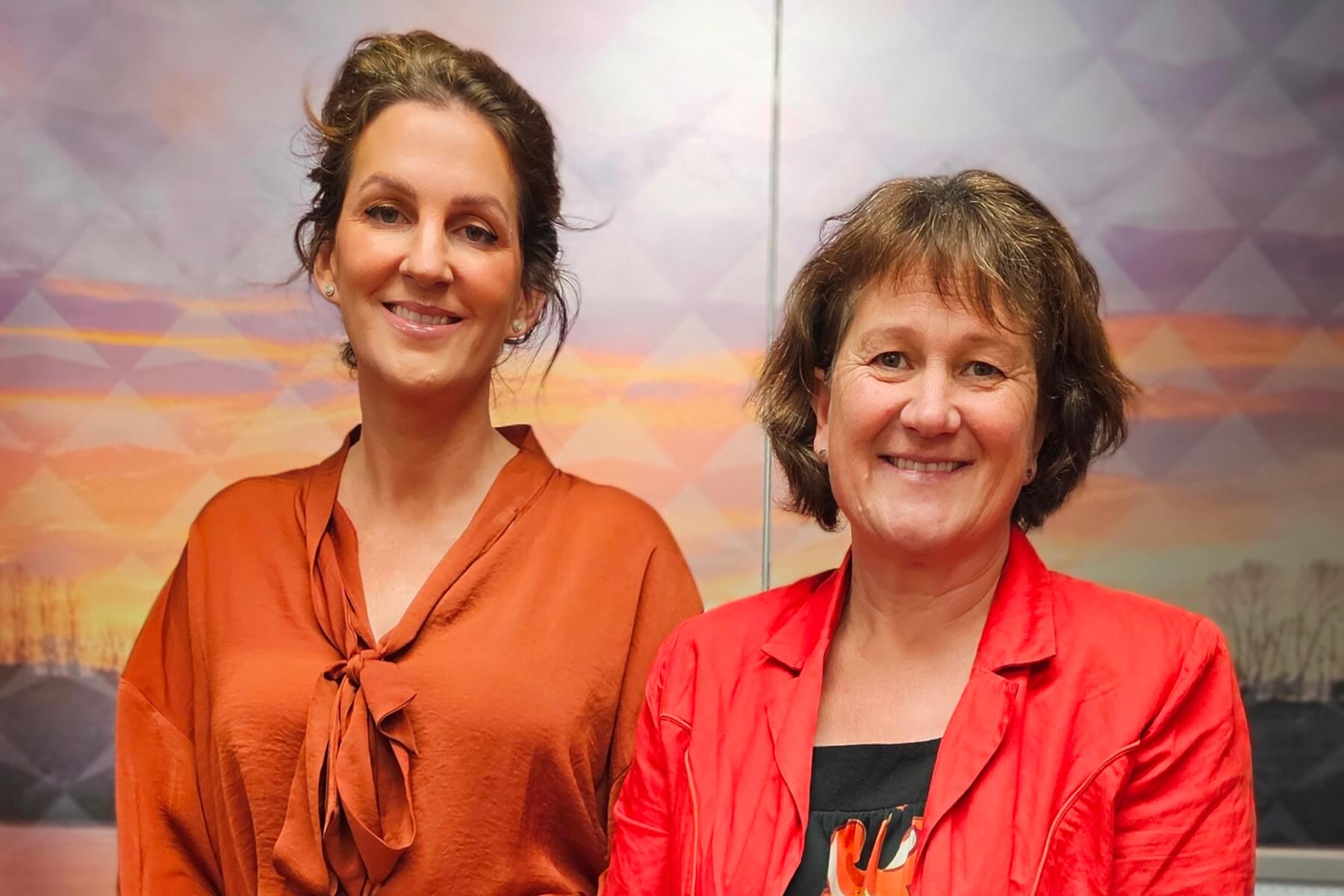
Community board chairs Jo Davies-Colley (Cambridge), left, and Ange Holt (Te Awamutu & Kihikihi), right before this week’s meeting about their performances. Photo: Mary Anne Gill.
- Mike Montgomerie
- Philip Coles

